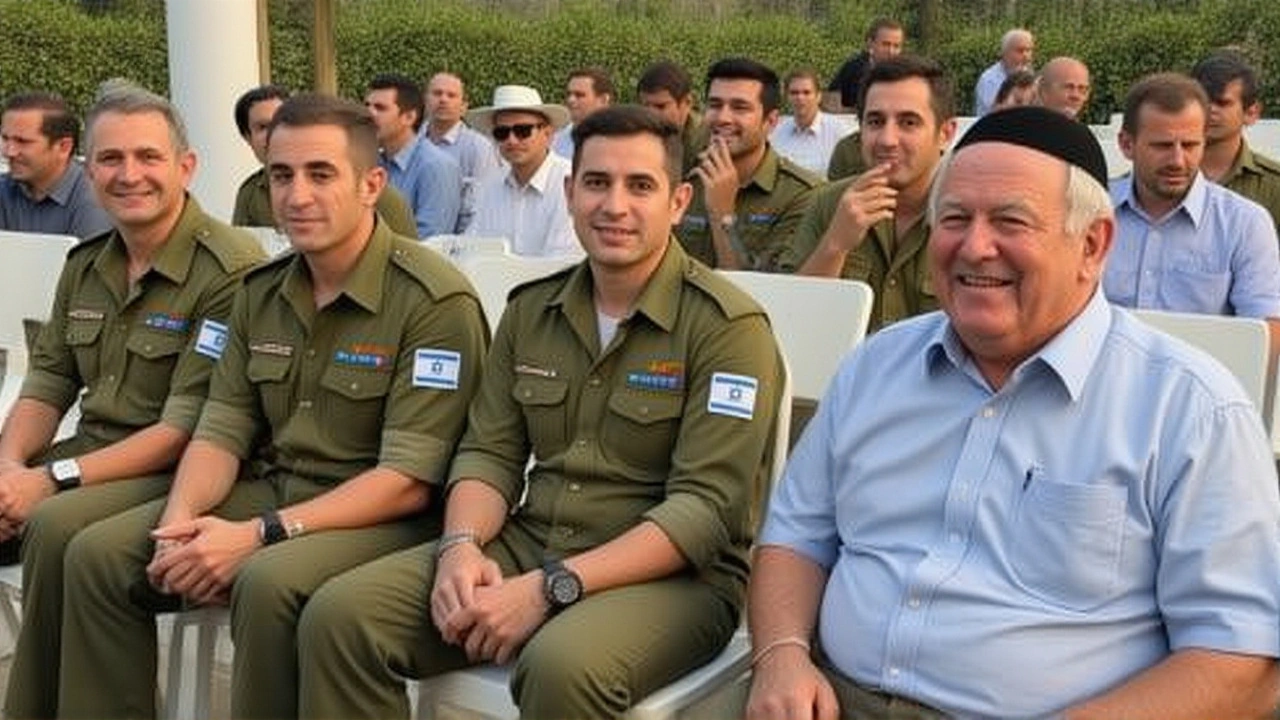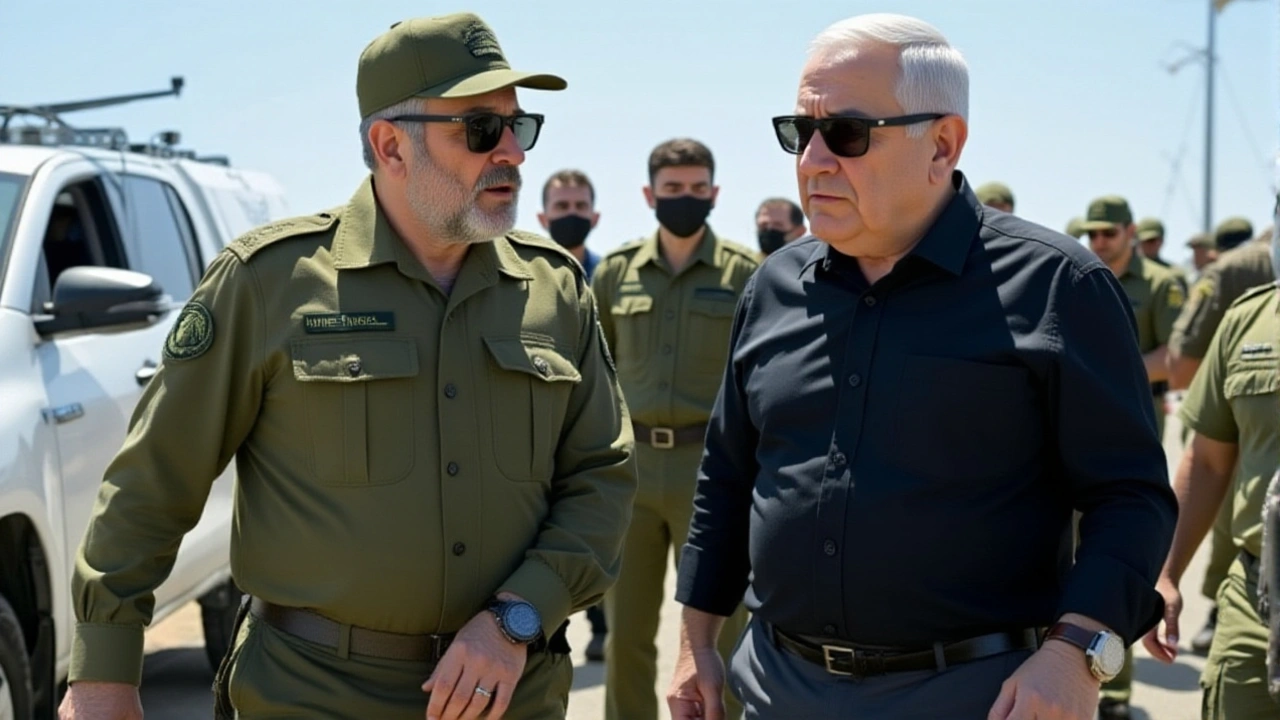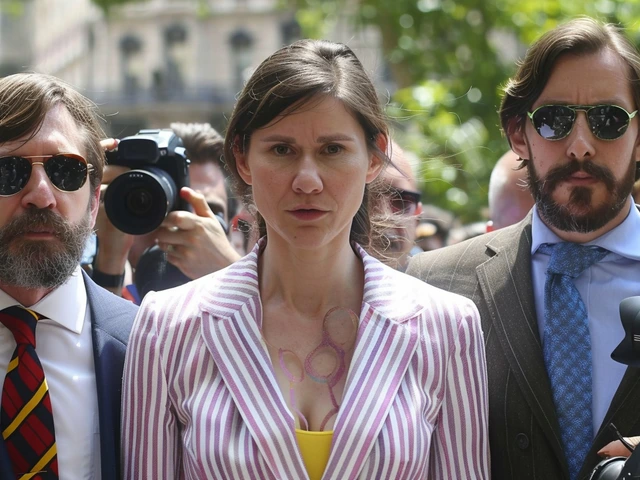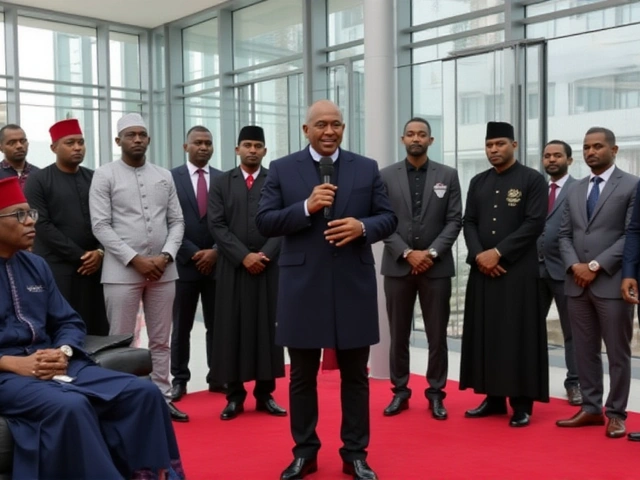When David Zini, Major General of the Israel Defense Forces was confirmed as head of the Shin Bet, the Israeli cabinet did so unanimously on Tuesday, setting the stage for a five‑year term that begins on October 5, 2025. The decision, backed by Prime Minister Benjamin Netanyahu, has sparked outrage among families of the roughly 50 hostages still believed to be in Gaza, where only about 20 are thought to be alive. Critics say Zini’s far‑right, messianic reputation clashes with hopes for a cease‑fire, turning Israel’s internal security leadership into a flashpoint in an already volatile conflict.
Background on David Zini
Born in 1970, Zini entered the army in 1992, joining the elite General Staff Reconnaissance Unit. He later rose through the ranks, holding senior posts in the Northern Command during the 2006 war with Hezbollah in Lebanon. Former colleagues describe him as a “hard‑line strategist” who never shied away from controversial decisions. By the time Netanyahu nominated him in May, Zini had already served as head of the IDF’s Counter‑Terrorism Division, a role that put him at the center of Israel’s security apparatus.
Political Context and Controversy
The nomination came after the abrupt exit of Ronen Bar, who stepped down in June following a court‑blocked attempt by Netanyahu to fire him in May. Bar’s departure left a vacuum that the government was eager to fill before the next election cycle. Netanyahu’s office released a statement saying, “The government has unanimously approved the appointment of Maj Gen Zini as head of the Shin Bet for a term of five years.”
What makes Zini’s appointment especially contentious is his publicly expressed opposition to ending the Gaza war. In a 2023 interview, he warned that a premature cease‑fire would embolden Hamas and jeopardize Israel’s deterrence. That stance sits uneasily with the families of the captives, who have repeatedly urged the government to prioritize hostage releases over further military escalation.
Reactions from Families and International Community
Leah Cohen, whose husband is among the 50 believed to be held, told reporters, “We’re already grieving. Seeing a man who opposes any pause in the fighting appointed to our security agency feels like a slap in the face.” Human‑rights groups echoed the sentiment, noting that Zini’s hardline reputation could reduce the pressure on Hamas to negotiate.
Outside Israel, U.S. officials have been cautious. A senior State Department official, speaking on condition of anonymity, said, “We’re watching the appointment closely. Stability in Israel’s security leadership is vital, but so is a clear path toward de‑escalation in Gaza.” The comment comes as former President Donald Trump pushes a peace plan that Netanyahu has agreed to study, a proposal still under review by Hamas.

Implications for the Gaza Conflict
With Zini at the helm, the Shin Bet is likely to adopt a more aggressive posture on intelligence gathering and counter‑terrorism within Gaza. Analysts from the Institute for National Security Studies (INSS) predict an increase in covert operations, citing Zini’s past emphasis on pre‑emptive strikes. “His track record suggests we’ll see a tightening of security measures, potentially limiting civil liberties for Palestinians in the Strip,” notes Dr. Yael Lerner, a senior fellow at INSS.
On the ground, the Israeli Defense Forces (IDF) continue to carry out airstrikes, even as two brief pauses in fighting have been announced. The human cost remains stark: according to the Israeli Ministry of Foreign Affairs, at least 20 of the 50 captives are still alive, while the rest are presumed dead after Israeli strikes aimed at Hamas command centers.
Looking Ahead: What Zini’s Tenure Could Mean
Over the next five years, Zini will shape not only Israel’s internal security but also its diplomatic posture. If the Trump‑backed peace plan gains traction, Zini may find himself balancing hard‑line security tactics with the political need for a negotiated settlement. Conversely, a prolonged military campaign could cement his reputation as the “messianic” guardian of Israel’s security.
“We’re entering a new era of security policy,” says former Shin Bet official Eli Cohen. “Whether that era leads to peace or perpetual conflict will depend on how leaders like Zini interpret the mandate they’ve been given.”
Frequently Asked Questions
How does Zini’s appointment affect the families of Gaza hostages?
Families fear Zini’s hard‑line stance will prioritize military objectives over hostage negotiations, potentially prolonging their ordeal. They have called for a leader more open to diplomatic solutions.
What are the main criticisms of Zini’s security philosophy?
Critics argue his “messianic” rhetoric fuels a confrontational approach that may undermine civil liberties and hinder peace talks, especially given his past statements against cease‑fires.
Will Zini’s leadership change Israel’s intelligence operations in Gaza?
Experts expect a tighter intelligence net, with more pre‑emptive raids and surveillance. This could increase pressure on Hamas but also raise the risk of collateral damage.
How does the international community view the appointment?
While allies stress the importance of stable security leadership, human‑rights groups warn that a hard‑line chief may stall efforts toward a cease‑fire and hostage release.
What is the timeline for Zini’s term?
Zini officially assumes the Shin Bet chief role on October 5, 2025, and will serve a five‑year term, ending in October 2030, unless he resigns or is removed by the government.






While the appointment of Major General Zini is procedurally sound, the emotional toll on the hostages' families cannot be ignored. It is incumbent upon policymakers to consider both security imperatives and humanitarian concerns.
Putting a hard‑line commander at the helm of Shin Bet during a volatile cease‑fire debate is a reckless gamble; the stakes involve not just strategy but the lives of civilians trapped in Gaza. This decision amplifies the pressure on negotiators and undermines any genuine push for a pause. We must demand leadership that prioritizes human life over partisan bravado.
The strategic calculus underpinning Zini’s elevation reflects a classic securitization paradigm where hard power is privileged over diplomatic engagement. From a counter‑terrorism doctrine standpoint, his pedigree in pre‑emptive strike matrices aligns with a kinetic‑first posture. However, the operational risk assessments reveal a potential escalation spiral that could destabilize the existing conflict equilibrium. Network‑centric intelligence frameworks will likely be intensified, increasing data acquisition bandwidth across signal and human domains. This data deluge demands robust analytic pipelines to prevent information overload and false‑positive targeting. Moreover, the legal‑normative implications of expanding surveillance in densely populated civilian zones raise compliance questions under international humanitarian law. Stakeholder analysis indicates that allied governments are cautiously monitoring the shift, balancing strategic support with advocacy for civilian protection. The domestic political calculus also factors in electoral timelines, where a hard‑line security posture may generate short‑term approval gains. Conversely, the reputational externalities could erode diplomatic capital in multilateral negotiations concerning a cease‑fire. In terms of force posture, a transition to a more aggressive interdiction regime could stretch logistical sustainment capacities. This operational tempo may strain asset readiness, leading to maintenance backlogs and personnel fatigue. From a risk management perspective, the probability‑impact matrix shows heightened exposure to unintended collateral damage. Therefore, a balanced approach integrating kinetic options with calibrated diplomatic overtures would mitigate systemic vulnerabilities. The policy recommendation would be to embed a cross‑functional oversight cell that audits both security outcomes and humanitarian metrics. Only through such integrated governance can the Israeli security establishment navigate the complex trade‑offs presented by Zini’s appointment.
It is evident that the appointment of a figure such as Zini, whose record is steeped in unwavering hardline tactics, sends a clear strategic signal to both allies and adversaries alike, a signal that underscores an uncompromising stance on security that inevitably reverberates through the diplomatic corridors of the region, influencing negotiations, public perception, and the delicate balance of power in ways that are both profound and far‑reaching; consequently, the families of hostages are left grappling with an intensified sense of despair as the prioritization of militaristic objectives appears to eclipse any immediate considerations for humanitarian relief, a reality that cannot be dismissed lightly
This dynamic underscores the necessity for a more nuanced approach that integrates security imperatives with compassionate engagement, lest the perpetual cycle of violence continue unabated, deepening wounds on all sides.
Shocking move, the families are right to be outraged.
Wow Zini is now chief 🤯 not surprised given his track record 🤔 this will only mean more raids 🙄 hope it doesn’t hurt more civilians 😕
i cant beleive the govrnment would put such a war monger in charge of internal securty it's just morla lous and i think they are ignoring the humanity of the hostages families they are putting politicla agenda before real lifes.
Honestly the whole narrative that Zini is some villain is a western propaganda stunt; Israel needs a leader who will crush Hamas without hesitation and any talk of “humanitarian concerns” is just a distraction from the real fight.
Yes! we should all raise our voice for the families! together we can push the gov to consider peace options, even if Zini is tough he can still listen to the people.
What a pathetic rant, you ignore the security reality that Hamas poses; families should understand that a hard‑line chief is exactly what is required to end this terror.
From an operational perspective, the Shin Bet under Zini is likely to prioritize intelligence fusion and proactive threat mitigation; stakeholders should therefore prepare for increased coordination demands and ensure that civil‑rights oversight mechanisms remain robust to prevent overreach.
In contemplating Zini’s ascension we confront the perennial dialectic between security and liberty, a tension that has shaped human societies since antiquity; the resolution of this paradox will ultimately hinge upon our collective willingness to balance existential defense with the moral imperatives of preserving human dignity.
It is a grave moral failing to elevate a man whose rhetoric glorifies perpetual conflict; leadership demands humility and a genuine commitment to saving lives, not the perpetuation of an endless war. The hostage families deserve a champion of peace, not a symbol of aggression. By ignoring this, the state betrays its own ethical foundations. History will judge this decision harshly.
The critique you offer, while passionately delivered, overlooks the strategic calculus that necessitates a seasoned operative like Zini; his experience in asymmetrical warfare equips him to navigate the intricate threat landscape, and dismissing his appointment as merely “aggressive” simplifies a complex security paradigm.
One could argue that the discourse has devolved into superficial branding rather than substantive analysis, yet the propensity to idolize tactical expertise merely reflects an underlying yearning for decisive authority in chaotic times.
Indeed, the allure of a stronghand narrative persists, but we must remain vigilant that such narratives do not eclipse the nuanced realities of conflict resolution 😊; only through reflective critique can policy evolve beyond mere power posturing.